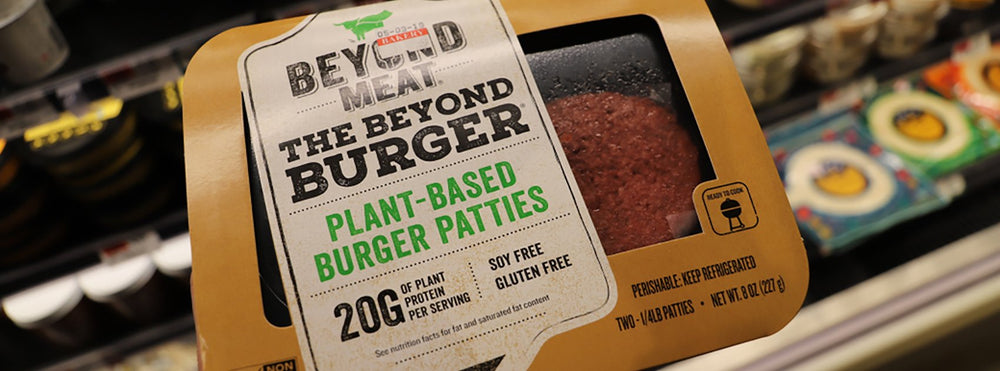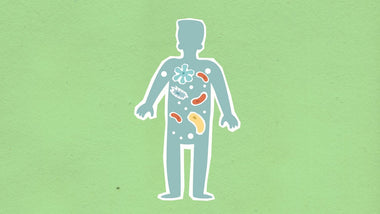When it comes to health, Impossible Foods and Beyond Meat might not be all they’re cracked up to be

Several months back I was traveling in California with friends and we stopped at a popular roadside burger spot. And I was excited to see that the restaurant allowed for substituting an Impossible Foods burger patty for the regular meat-based version. Which is what I chose to do.
If you’re not familiar with Impossible Foods or Beyond Meat, these are companies that have cracked the code on simulating meat – down to the texture, taste and even that “bleeding” characteristic – using only plant-based ingredients. Consumers have jumped on board for a number of reasons including environmental and animal welfare concerns - and the assumption that these items are healthier. And now many fast food chains are starting to offer them up. Both companies have become Wall Street darlings and their valuations are going through the roof.
Back to my burger.
It arrived looking just like everyone else’s. And it tasted pretty good. Honestly, if I had not known I was eating a plant based patty, I wouldn’t have known the difference. And yes, it did “bleed”. But after I finished it, I suddenly thought to myself – what did I just eat?? What unnatural concoction of ingredients and scientific manipulation gets plants to bleed like meat? We don’t have long term studies to tell us it’s OK to eat this way. And is it even healthier than the beef version?
Here is the ingredient list of the Impossible Burger patty I ate:
Water, Textured Wheat Protein, Coconut Oil, Potato Protein, Natural Flavors, 2% or less of: Leghemoglobin (Soy), Yeast Extract, Salt, Konjac Gum, Xanthan Gum, Soy Protein Isolate, Vitamin E, Vitamin C, Thiamin (Vitamin B1), Zinc, Niacin, Vitamin B6, Riboflavin (Vitamin B2), Vitamin B12.
And here's how the Impossible Burger stacks up against its meat counterparts:
These plant-based patties might not contain any meat and therefore be better for cows and the environment, but it turns out they’re not necessarily good for us. The calorie and fat content is not much different from conventional offerings (still high) – and the sodium content is actually HIGHER. Cholesterol content is significantly lower, but if you’ve been reading my blogs you know that cholesterol levels in the blood are not just related to cholesterol levels in the food – but rather the overall composition of the diet.
Since I ate my burger, Impossible Foods has tweaked the patty formula, but it still reads like a chemistry experiment with a few vitamins thrown in.
Stick to Whole Foods
By now you know that I’m a whole food plant-based diet advocate. But that “whole food” part is REALLY important. The more we fiddle with nature, the farther we get away from the original composition of a food, the more likely we end up with something that is not that healthy at all. Or something that could impact our bodies in unforeseen ways. Artificial sweeteners are a prime example.
In addition, just because there are added vitamins is not necessarily a saving grace. Vitamins are most bio active when they are ingested as an intrinsic component of a whole food package. The delivery vehicle really matters and you are far better off getting your vitamins from whole real foods.
Which is why at Step One we stick to whole food ingredients that have mountains of human data behind them. And why we've gone so far as to do a clinical trial to evaluate the health effects of our foods. We believe in never fiddling with nature when health is on the line.
And my conclusion as to those burgers? Regardless of whether they’re made from plain old beef, or from Impossible or Beyond ingredients, the REAL answer and safest choice is to just eat fewer of them. Period.

Tested & Proven Results.
- Cardiologist formulated
- Supported by over 500 publications
- Clinically-proven, in a double-blind randomized trial with Mayo Clinic and The University of Manitoba
80% of participants lowered their cholesterol in just 30 days. With just two servings per day, Step One Foods offers a proven-effective way to naturally lower LDL (bad) cholesterol.
Get heart health tips and articles like this, delivered right to your email.
New articles every week.
You may also like...

The Most Misunderstood Heart Number (Plus Your Tune-Up Checklist)

Why Two People Can Eat the Same Calories—and Only One Gains Weight

You don’t need to avoid foods with cholesterol…except for these



